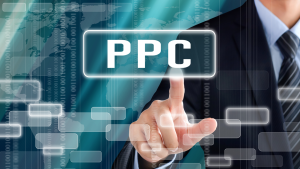Every business wants to grow—but with so many options in digital marketing, deciding whether to invest in PPC (Pay-Per-Click) or SEO (Search Engine Optimization) can feel like a crossroads. PPC delivers instant visibility, while SEO builds long-term credibility. Which one should you prioritize—or should you do both? In this article, we’ll compare them head-to-head, help you assess which fits your goals best, and even suggest strategic keywords like “PPC vs SEO comparison” or “SEO vs PPC benefits” that have strong search demand with manageable difficulty.

What Is PPC?
PPC, short for Pay-Per-Click, is an advertising model where businesses pay each time a user clicks their ad. It’s most commonly seen on platforms like Google Ads, Bing Ads, and social media networks such as Facebook or LinkedIn. What makes PPC compelling is that you can launch campaigns quickly, set daily budgets, and appear at the top of search results almost immediately Wikipedia.
Advantages of PPC
- Instant visibility: Get your brand in front of searchers right away.
- Precise targeting: Choose keywords aligned with buying intent.
- Budget control: You only pay per click and can set daily caps.
Drawbacks of PPC
- Cost per click (CPC) can be high for competitive keywords, especially those with strong commercial intent KeySearchSemrush.
- No clicks = no cost, but when you stop paying, ads vanish immediately.
- Click fraud and wasted spend can be a concern if not monitored carefully Wikipedia.
What Is SEO?
SEO, or Search Engine Optimization, aims to improve your site’s ranking in organic (unpaid) search results. It’s about crafting outstanding content, optimizing technical elements, and building authority over time. SEO helps attract traffic across various types of searches—informational, navigational, and transactional WikipediaSearch Atlas – Advanced SEO Software.
Advantages of SEO
- Cost-effective: Traffic doesn’t incur per-click costs.
- Sustainable growth: A top ranking can deliver clicks for months or years.
- Trust & credibility: Users tend to trust organic results more.
Drawbacks of SEO
- Time-consuming: Ranking for keywords, especially competitive ones, takes effort and time.
- Keyword difficulty matters: Targeting high-volume but low-difficulty keywords is vital for early success WildcatSearch Engine Land.
- Algorithm dependency: Updates can impact your rankings.
Keyword Strategy — Low Difficulty, High Volume Picks
For both PPC and SEO, you’ll want high-volume keywords that match your audience’s intent, with manageable difficulty. Keyword research tools like Google Keyword Planner, Semrush, and Moz Explorer can help you identify terms that balance volume and competition TechRadar+1SemrushSearch Atlas – Advanced SEO Software.
Some solid keyword ideas (subject to tool verification for your region) include:
- “PPC vs SEO comparison”
- “SEO vs PPC benefits”
- “should I use PPC or SEO”
- “PPC vs SEO for small business”
These are likely long-tail enough to be less competitive while still drawing targeted traffic.
PPC vs SEO
Here’s how to choose based on your business goals:
Want Quick Leads or Launch Visibility?
Go for PPC. It’s perfect when you need fast traction, such as for promotions, events, or new product launches.
Building for the Long Run?
Choose SEO. If you’re aiming for sustainable traffic that’s cost-effective over time, invest in content and optimization.
Limited Budget?
SEO can deliver more for less, but you’ll sacrifice speed. A blended strategy—using PPC for quick wins alongside SEO for long-term organic growth—is often ideal boostability.comSearch Atlas – Advanced SEO Software.
Testing Topics or Validation?
PPC data can validate keywords before committing resources to SEO. Use ad performance insights to inform long-tail content opportunities Search Atlas – Advanced SEO Software.
Real-World Insight from the Field
Reddit marketers often highlight the fundamental differences:
“PPC is for high intent keywords, SEO is for both high intent and low intent.”
“PPC for transactional queries. SEO for informational queries.”
“Keep your SEO and PPC separate but cross-reference to look for new ideas.”
This emphasizes how PPC zeros in on ready-to-buy customers, while SEO captures awareness and interest across the funnel.
Conclusion
Deciding between PPC and SEO isn’t an either-or situation. If you’re after instant visibility and leads, PPC delivers quickly—though at a cost. If you’re focused on sustainable growth and long-term ROI, SEO is your go-to method. The sweet spot? A hybrid strategy that leverages PPC for quick validation and traffic while building SEO assets for ongoing performance.
Ready to find the right mix for your business? 👉 Contact us today and let’s craft a strategy that drives results.
